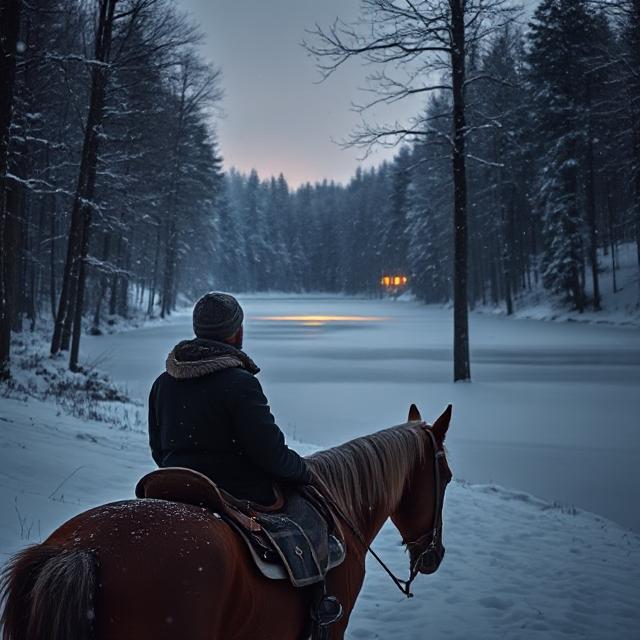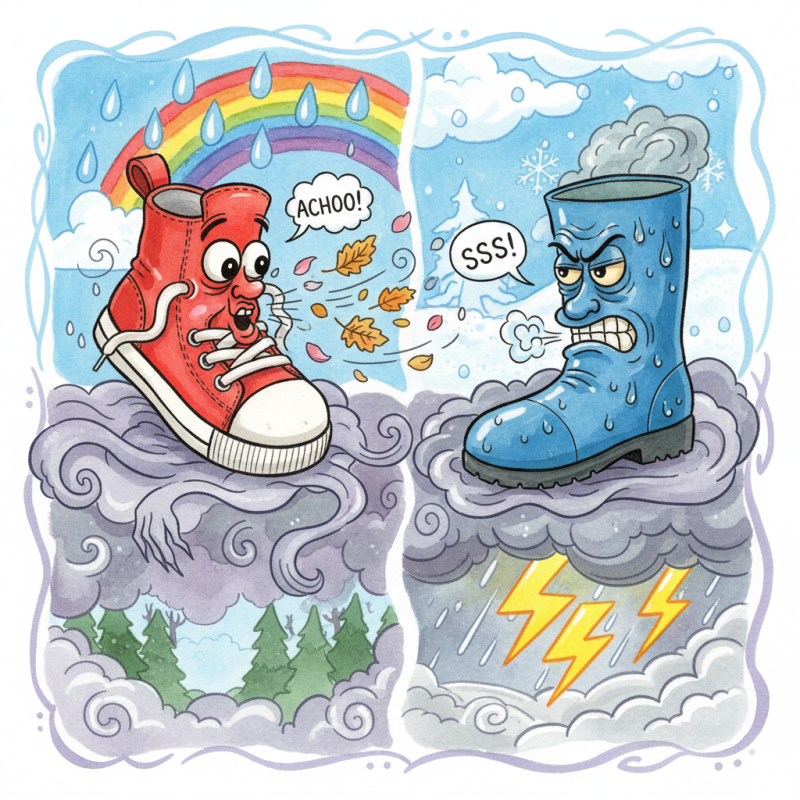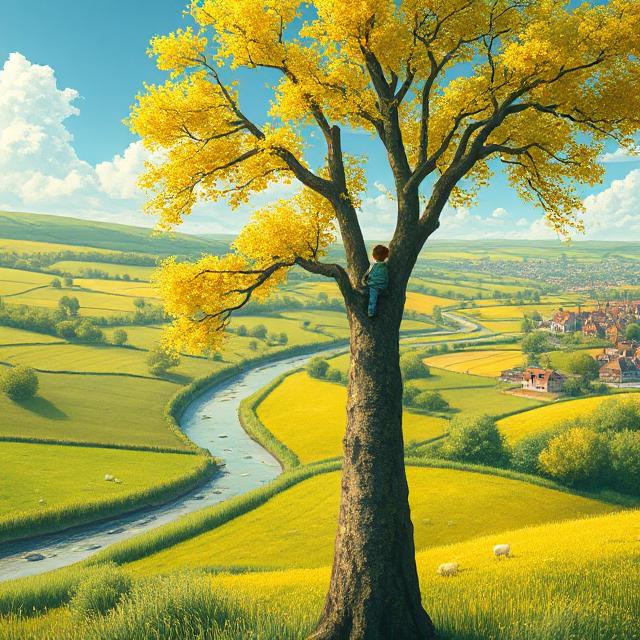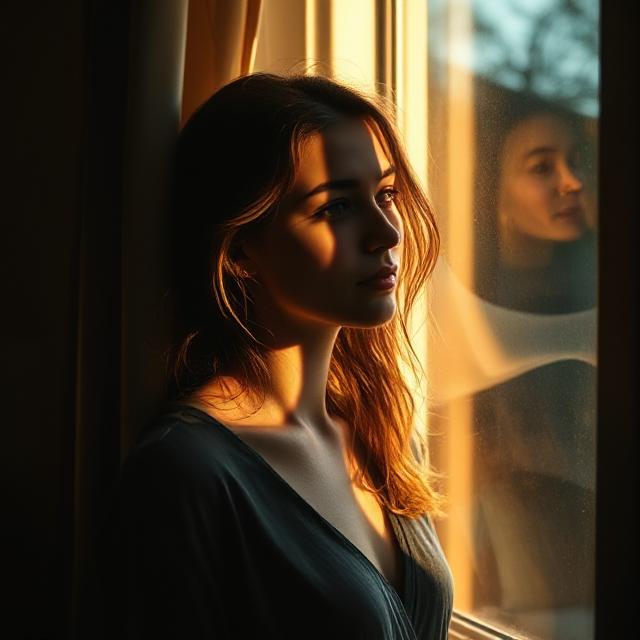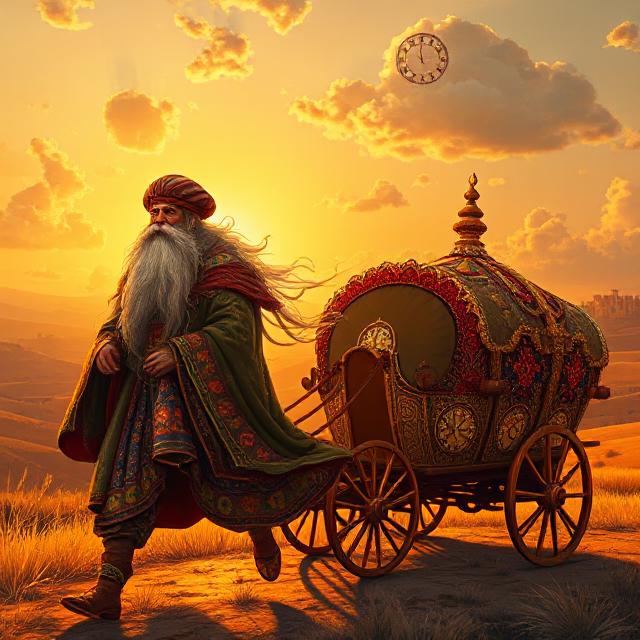Discover the summary, theme, paraphrase, and line-by-line explanation of Robert Frost’s poem “Stopping by Woods on a Snowy Evening.” Learn its meaning, symbolism, and important questions with easy notes for students.
Stopping by Woods on a Snowy Evening
by Robert Frost
“Whose woods these are I think I know.
His house is in the village though;
He will not see me stopping here
To watch his woods fill up with snow.”
“My little horse must think it queer
To stop without a farmhouse near
Between the woods and frozen lake
The darkest evening of the year.”
“He gives his harness bells a shake
To ask if there is some mistake.
The only other sound’s the sweep
Of easy wind and downy flake.”
“The woods are lovely, dark and deep,
But I have promises to keep,
And miles to go before I sleep,
And miles to go before I sleep.”
🔹 Summary
The poem is about a traveler who stops by a forest on a snowy evening. He is attracted by the beauty and silence of the woods. The scene is peaceful, calm, and lovely, but the traveler remembers that he has duties and responsibilities in life. So, even though he wishes to stay, he decides to continue his journey.
🔹 Main Idea
The main idea of the poem is the conflict between desire for rest/peace and responsibility in life. The poet shows that life is full of duties, and we cannot stop for long, even if we are tempted by beauty and comfort.
🔹 English to Bangla (Easy Translation)
Stanza 1
“Whose woods these are I think I know.
His house is in the village though;
He will not see me stopping here
To watch his woods fill up with snow.”
👉 আমি মনে করি কার জঙ্গল এগুলো আমি জানি।
তার বাড়ি কিন্তু গ্রামে,
সে আমাকে এখানে থামতে দেখবে না,
যখন আমি দেখি তার জঙ্গলে বরফ জমছে।
Stanza 2
“My little horse must think it queer
To stop without a farmhouse near
Between the woods and frozen lake
The darkest evening of the year.”
👉 আমার ছোট্ট ঘোড়া হয়তো এটা অদ্ভুত মনে করছে,
কারণ আশেপাশে কোনো বাড়ি নেই, তবুও আমি থেমেছি।
জঙ্গলের পাশে আর বরফ জমা হ্রদের ধারে,
বছরের সবচেয়ে অন্ধকার রাতে।
Stanza 3
“He gives his harness bells a shake
To ask if there is some mistake.
The only other sound’s the sweep
Of easy wind and downy flake.”
👉 ঘোড়া তার ঘণ্টা ঝাঁকায়,
যেন আমাকে জিজ্ঞেস করে আমি কি ভুল করে থেমেছি।
শুধু আরেকটি শব্দ শোনা যায়—
হাওয়ার মৃদু শব্দ আর নরম তুষার কণা পড়া।
Stanza 4
“The woods are lovely, dark and deep,
But I have promises to keep,
And miles to go before I sleep,
And miles to go before I sleep.”
👉 বন সুন্দর, অন্ধকার আর গভীর।
কিন্তু আমার অনেক প্রতিশ্রুতি রক্ষা করতে হবে।
আমি ঘুমোতে যাওয়ার আগে অনেক পথ বাকি আছে,
আমি ঘুমোতে যাওয়ার আগে অনেক পথ বাকি আছে।
🔹 Paraphrase
The poet stops his horse near a forest covered with snow. The forest is calm and beautiful, and he feels like staying there to enjoy the peace. But his horse is confused because it is unusual to stop without a farmhouse nearby. The only sounds are the wind and falling snow. The poet is deeply attracted to the beauty of the woods, but he remembers that he has responsibilities and duties in life. So, he cannot stay; he must continue his journey.
Stanza 1
Line 1: “Whose woods these are I think I know.”
👉 The poet thinks he knows who owns the woods.
Line 2: “His house is in the village though;”
👉 The owner lives in the village, not near the woods.
Line 3: “He will not see me stopping here”
👉 Since the owner is far away, he will not notice the poet stopping here.
Line 4: “To watch his woods fill up with snow.”
👉 The poet has stopped to enjoy watching the woods as they slowly get covered with falling snow.
Stanza 2
Line 5: “My little horse must think it queer”
👉 The poet’s horse may find it strange.
Line 6: “To stop without a farmhouse near”
👉 Because usually they stop near houses, but here there is no farmhouse nearby.
Line 7: “Between the woods and frozen lake”
👉 They are standing between the snowy forest and a frozen lake.
Line 8: “The darkest evening of the year.”
👉 It is the darkest night of the year (probably the winter solstice).
Stanza 3
Line 9: “He gives his harness bells a shake”
👉 The horse shakes the bells on its harness.
Line 10: “To ask if there is some mistake.”
👉 It seems as if the horse is asking if the poet made a mistake by stopping here.
Line 11: “The only other sound’s the sweep”
👉 Apart from the bells, there is no sound except the soft sweeping noise.
Line 12: “Of easy wind and downy flake.”
👉 The sound comes from the gentle wind and the light, soft snowflakes falling.
Stanza 4
Line 13: “The woods are lovely, dark and deep,”
👉 The forest looks very beautiful, peaceful, and mysterious.
Line 14: “But I have promises to keep,”
👉 The poet remembers he has duties and responsibilities to fulfill.
Line 15: “And miles to go before I sleep,”
👉 He still has a long journey ahead before he can rest.
Line 16: “And miles to go before I sleep.”
👉 This line is repeated for emphasis, meaning he has many responsibilities before he can finally rest or even before death.
🔹 Short Questions and Answers
Q1. Who is the poet of the poem?
Ans: Robert Frost is the poet.
Q2. What season is described in the poem?
Ans: The winter season is described.
Q3. Why does the horse think it is strange to stop?
Ans: Because there is no farmhouse nearby.
Q4. What sounds does the poet hear in the woods?
Ans: The sound of the horse’s bells, the wind, and the falling snow.
Q5. What are the woods like?
Ans: Lovely, dark, and deep.
🔹 Long Questions and Answers
Q1. What is the main conflict in the poem “Stopping by Woods on a Snowy Evening”?
Answer: The main conflict is between the poet’s desire to stay and enjoy the peaceful woods and his sense of responsibility. The woods are beautiful and give him peace, but he cannot remain there. He remembers his duties, promises, and the journey of life he must continue.
Q2. Explain the meaning of the last two lines: “And miles to go before I sleep, And miles to go before I sleep.”
Answer: These lines mean that the poet has many duties and responsibilities in life before he can rest. Here, “sleep” may mean actual rest or the final rest of death. The poet reminds himself that life is not for stopping and resting; it is for moving forward and fulfilling promises.







